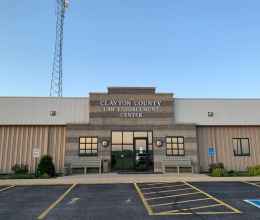On July 1, 2020, the Southern Center for Human Rights, the American Civil Liberties Union, and the ACLU of Georgia filed a lawsuit in federal district court on behalf of four people incarcerated at the Clayton County Jail. The named defendants include the Clayton County Sheriff and several subordinates in his office.
The lawsuit asserts that defendants’ disregard of the known risks of COVID-19 and its attendant illness and death exposes people who are incarcerated at the county jail to a highly fatal, infectious disease in violation of their rights under the Eighth and Fourteenth Amendments as well as federal disability rights laws.
With nearly 2,000 detainees, the Clayton County Jail, located about 20 miles south of Atlanta, is the second largest jail in Georgia. It is also the site of a growing COVID-19 outbreak. According to the Georgia Department of Public Health, as of June 11, 2020, 45 people at the jail had tested positive for COVID-19 (32 detainees and 13 staff members). The outbreak is escalating with 16 new positive tests in the first eight days of June alone.
Plaintiff Randolph Mitchell is 72 years old and has a chronic heart condition. He is serving a 12-month sentence for a misdemeanor. During the first several months of the pandemic, Mr. Mitchell was refused a jail-issued mask; he instead wore a homemade mask made from underwear which he purchased from another detainee in exchange for two packets of soup.
Plaintiff Rhonda Jones is 58 years old and has chronic pulmonary obstructive disorder. She is awaiting trial and cannot afford to purchase her release on bail. She has been hospitalized twice for pneumonia in the past year. As the third person in a cell built for two, Ms. Jones sleeps on the floor near a puddle of foul-smelling water that leaks from the toilet. In a statement provided to the court, Ms. Jones stated: “I am scared that I could get sick and die from the coronavirus at this jail.”
For many detainees, the sum total of the defendants’ prevention effort has been to tell them to use a towel, t-shirt, sock, or underwear as a makeshift facemask, and to limit their out-of-cell time. On a daily basis, detained people are forced into close proximity to others, with no physical distancing during meal distribution, medication distribution, video court, and other out-of-cell activities.
CASE DETAILS
Status
ACTIVE
Date filed
July 1, 2020
Counsel
-
Southern Center for Human Rights
-
American Civil Liberties Union Foundation
-
American Civil Liberties Union Foundation of Georgia
LEGAL DOCUMENTS
